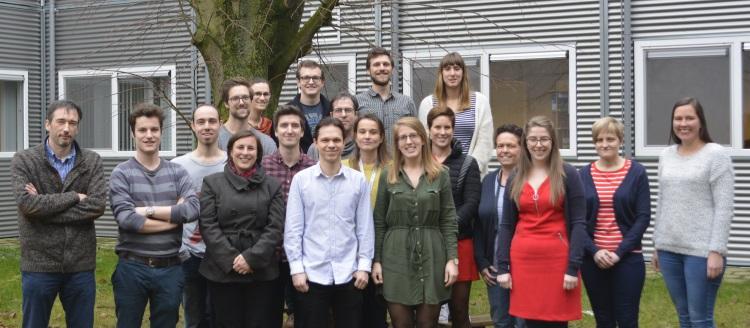CRIG research teams collaborated to develop a 3D bioprinted model for peritoneal metastasis
CRIG researchers from 4 different UGent faculties teamed up to develop a relevant, 3D printed preclinical model for peritoneal metastasis.
Peritoneal metastasis is a major cause of death, and although treatments advance, there are often limits such as poor tissue penetration by chemotherapy. The current preclinical models do not precisely reproduce the in vivo conditions of peritoneal metastasis formation. Therefore, improved preclinical models are needed to enhance therapeutic progress.
CRIG researchers from different UGent faculties set out to tackle this challenge together, using a multidisciplinary strategy. They developed a 3D bioprinted, tissue-engineered and biotransplantable scaffold model that mimics in vivo peritoneal metastasis development. By 3D printing a scaffold, the size, mechanical and biochemical properties of metastasis conditions can be replicated. Both tumor cells and cancer-associated fibroblasts (CAFs) are used to cultivate the model, which is subsequently implanted in the peritoneal cavities of mice. The implanted models present a heterogeneous cell population, including the proliferating cancer cells and CAFs but also host cells such as immune, adipose and epithelial cells. In addition, the model also promoted angiogenesis. Thus, the multifaceted interactions between different cell types (the tumor microenvironment) that occur within peritoneal metastases in actual patients are reproduced in this novel model. In conclusion, the 3D printed model is a relevant and improved tool to screen therapeutic drugs (such as drug efficacy and penetration).
Read the full publication in Biomaterials
The study was also featured in the press:
This study is an excellent example of fruitful and multidisciplinary collaboration between CRIG teams.
The research was partially financed by CRIG (young investigator proof-of-concept project to dr. Elly Devlieghere).
The research team at the Lab of Experimental Cancer Research:
